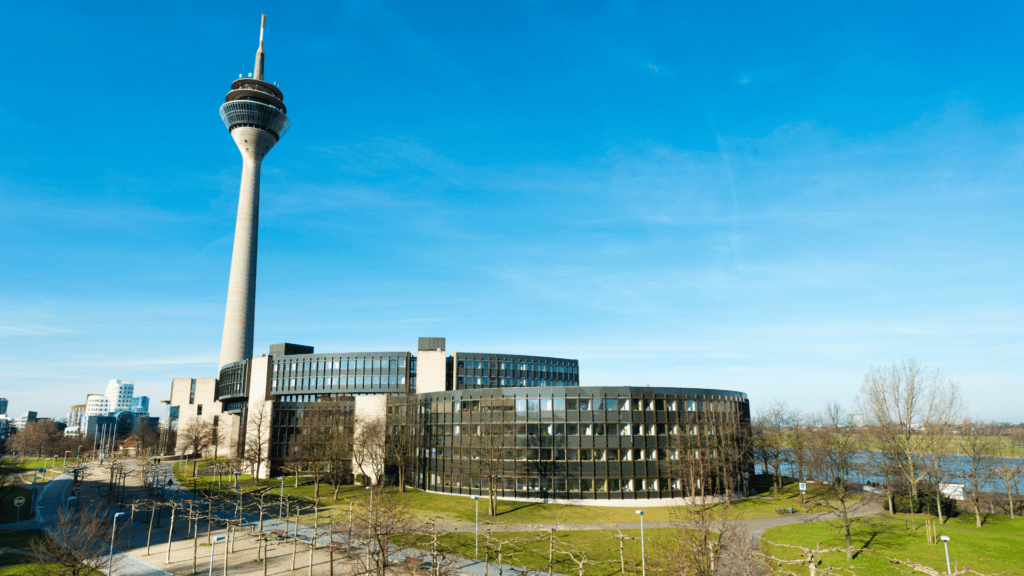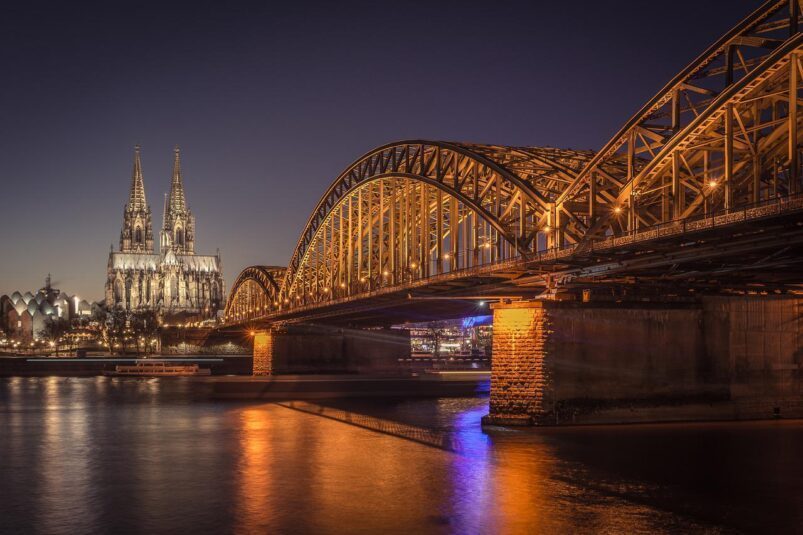The Monument Protection Alliance (Denkmalschutz Bündnis) fought against concerning changes to heritage laws in the Rhine-Westphalia region of Germany. Moritz Richter, a European Heritage Youth Ambassador from the area, shares his experience in trying to convince politicians to listen to heritage experts.
A Commentary on the enacting of the new Monument Protection Act
The purpose of any new law is to improve an existing situation. The new Monument Protection Act passed by the parliament of North Rhine-Westphalia on the 6th of April 2022 does not fulfil this criterion. Despite massive criticism from monument experts, a law was passed that does not protect the federal state’s monuments in the long term but endangers them.
Monument experts are not heard – public debate unwanted
Since 2020, when the first draft of a new law on the protection of monuments in North Rhine-Westphalia was published, a Monument Protection Alliance (Denkmal-Schutzbündnis) has formed, which since then has continuously and proactively campaigned for a public dialogue to improve the proposed law and to support politicians to find the best solution for the protection of our precious heritage.
The Monument Protection Alliance consists of a large number of monument initiatives, renowned associations and federations, experts, scientists, restorers, art historians, professors, architects, cultural commissioners, active citizens, committed full-time and voluntary monument conservators. They all have with tireless commitment expressed their criticism on the new version of the law. They all have the necessary expertise to classify and evaluate this law. The voices are clear and they firmly reject the law in its form since the beginning.
A multitude of actions have been planned and implemented by the Monument Protection Alliance
Since 2020 the Monument Protection Alliance organized a multitude of actions to get involved and act in the process of improving the Monument Protection Act. Panel discussions, public forums, university events were organized. Even a petition with 24.500 votes was created and officially handed over to the responsible political committee. Every single one of the above-mentioned alliance partners has published a statement and addressed it to the responsible minister. Organizations such as Europa Nostra were involved to include a European perspective and to address, that the new law does not correspond to global and European standards in the field of monument preservation and protection. A so-called “Düsseldorf Declaration on the Future of Monument Protection” was published and handed to the state government as a last resort. Everything with the overall goal to develop the proven and tested 1980 Monument Protection Act and to improve it together with the government.

Extraordinary commitment by monument experts
All actions together underline in an extraordinary way the commitment of the Monument Protection Alliance since 2020. But they haven’t been heard and they haven’t been included in the public debate by the politicians in a way they should have been. All actions and all the good will remained unheard. Any offers to talk had no effect and no real dialogue was allowed. Democracy should be supported by a broad parliamentary debate, by involving those who are experts in the respective field. This is what has not happened here.
Political interests of individual actors take precedence over the social good
The exclusion of experts from the legislative process is the major point of criticism beside the clear weaknesses in the content of the law. Here, political interests of individual actors take precedence over the social good and over the opinion of indisputable experts. The already very small number of monuments in North Rhine-Westphalia (1.5% of the total building stock) is endangered due to profit-oriented interests and to an active repression of expertise and consultation. The legislative process was unworthy of a democratic process and the non-observance of politics speaks for itself.
The appeal to politics continues
Although the law is passed and is about to become effective with the 1st of June 2022 the commitment of the Monument Alliance continues. The state government of North Rhine-Westphalia is once again called to accept the offer of a dialogue with the expert community and to work together on a law for the protection of monuments, that is worthy of one of Europe’s oldest cultural landscapes. The protection of historical monuments must once again become a central cultural policy concern of the state of North Rhine-Westphalia.
The existing law from 1980 begins with a key sentence which will be removed without replacement by the Federal State Government: “Monuments must be protected, cared for, used reasonable and scientifically researched. They should be made accessible to the public within reason.”. A phrase that like no other indicates the democratic importance and social significance of monument protection. We should not give up on this.
About the author

Moritz Richter is an architect specialised in the conservation and preservation of cultural buildings. His main focus and passion is in architectural history and theory. In addition to his architectural work, he is a PhD candidate at the Kunstakademie (Academy of Arts) Düsseldorf researching on the 19th century architecture of the academy’s main building in terms of architectural theory and art history

